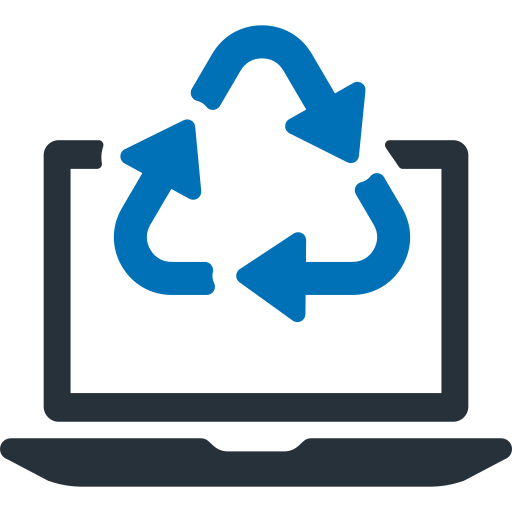EPR certificate for Battery Waste Management
The irregular power supply and ever-rising production of rechargeable products have taken for demand for batteries to a new level. Today, batteries are used in a variety of products, including automobiles, toys, gadgets, machinery, medical devices, and so on. It seems that battery production will witness exponential growth in the near future. Sadly, the massive battery production is leading our country to one serious agenda- the generation of enormous hazardous waste.
The rate at which this waste is thriving is threatening, and it requires immediate attention from the authorities concerned. The Battery Waste Management Rules, 2022 was promulgated aiming to curb this alarming situation. The Act seeks to hold producers accountable for waste generation and management. The legislation requires notified entities to stay transparent with their waste prevention and management endeavors, leading to better authority oversight.
The legislation also requires the producer, recycler, and refurbisher to get registered with the respective pollution control board and oversee waste battery management as advised. Let’s drill down the legalities around the EPR certificate for Battery Waste Management.
EPR in Battery (Management & Handling) Rules, 2022: A Brief Insight
This legislation came into effect on August 22, 2022, and it was promulgated by the Ministry of Environment, Forests, and Climate Changes. It supersedes the erstwhile Act - Battery (Management & Handling) Rules, 2001. The legislation bolsters a paradigm of EPR, which is abbreviated for “Extended Producer Responsibilities”.
EPR seeks to extend the obligations of manufacturers to ensure end-to-end waste management. This involves apt in-house waste processing, safe storage, sending waste to a certified recycler or refurbisher, and documenting the entire process.
The waste collection should be pragmatic and tangible, and as per the specified limit of the CPCB i.e. Central Pollution Control Board.The authority has penned down a percentage-wise waste collection target that increases annually.
What exactly does “waste battery” mean?
As per the governing legislation, the following can be considered as "waste battery":
- Used battery as well as its parts/li>
- End-of-life battery as well as its parts
- Pre-consumer Off-Spec Battery and its components
- Expired battery
- Users-discarded battery
Note: The BMW Rules 2023 apply to portable, electric vehicles, automotive, and industrial batteries. These rules do not cover batteries used in war material or for military or space exploration purposes
Certificate types
Producer EPR Certificate for Battery Waste Management
According to Rule 4 of the BWM Rules 2022, every producer involved in battery production must obtain approval, i.e., an EPR certificate, from the CPCB via e-form 1 (A) available on the online portal. Even if the manufacturer heavily relies on battery imports, this certificate is mandatory.
In view of the BMW Rules 2022, the producer must pay attention to the proper utilization of battery waste, including channeling waste to recyclers and refurbishers and recovering useful components.
Refurbishers and Recyclers EPR Certificate for Battery Waste Management
All recyclers and refurbishers must approach the SPCB, i.e., the State Pollution Control Board, via the online portal to secure a one-time registration.
Registered recyclers are required to submit quarterly returns in Form-4, reflecting the volume of waste battery collected from different sources. The same rule applies to refurbishers, as they are also responsible for transparently reporting waste accumulation, recovery, and channelization to the authorities.
The responsibility of sharing waste management details rests on all members in the supply chain dealing with battery or battery waste in any way. In summary, entities involved in the accumulation, sorting, channelization, refurbishment, and recycling of all types of battery waste must follow the guidelines and share accumulation targets with the authorities.
Documents Concerning EPR Certificate for Battery Waste Management
- Self-attested copy of GST Certificate
- Aadhar Card of the authorized person
- Pan Card of the Company
- TIN Number
- CIN number
- Fire NOC
- Site documents
- Factory license
- Staff details
- List of equipment (used in recycling, refurbishment, or production)
Process Concerning EPR Certificate for Battery Waste Management
As of now, the CPCB portal is in the maintenance phase. Therefore, you can choose the offline mode to file your application with the authority. Here’s how you can attempt application filing via offline mode:
- Step 1. Determine the Engine or Model Family of the Vehicle:Accuracy in your paperwork is crucial for a successful licensing procedure, and obtaining an EPR certificate is no exception. CPCB is stringent when it comes to documentation, so there is little room for error. Ensure that there are no misleading or inaccurate details in the documentation. Double-check everything, as rejection can lead to multiple re-attempts. For precise guidance, you can turn to Adviso.
- Step 2. Application submissionApplication submission involves downloading the prescribed application form, filling it out with accurate details, attaching the required documents mentioned above, and sending everything, along with the form, to the Central Pollution Control Board via registered mail.
- Step 3. Document VettingUpon receiving the paperwork, the authority will inspect it for any errors or non-conformities. Any discrepancies found will be communicated to the applicant. The license-seeker must resolve the concerns within the stipulated timeline to keep the license processing on track.
- Step 4: Certification grant -Successful document vetting will lead to the granting of the EPR certificate for Battery Waste Management. The licensee can then commence waste accumulation and management as instructed by the relevant authority.
- Form 1(B) serves as a certificate of registration for producers.
- If the EPR certificate undergoes any change or a producer decides to discontinue the production of a particular model, the licensee must inform CPCB about such changes.
- Every notified producer must submit an EPR plan via Form 1(c) to the authority by June 30th each year. It must reflect overall batteries manufactured in the preceding fiscal year, information on the quantity and weight of the battery, dry weight, and more.
- Producers must use domestically recycled materials in new batteries. The minimum utilization of recycled materials must increase annually by 5 percent. These rules span batteries that fuel portable devices, electric vehicles, and industrial purposes.
- Entities catering to the battery waste provisioning must work with registered recyclers and refurbishers.
Compliances
Key Points Concerning EPR Certificate for Battery Waste Management Rules
Why Adviso?
For those navigating the intricate landscape of securing an EPR certificate for Battery Waste Management, Advisor stands ready to render unparalleled professional assistance. With a proven track record of giving top-tier licensing services, Adviso ensures that clients can focus on what matters while leaving the compliance requirements in capable hands.
Secure your EPR approval with zero hassle and team up with Adviso today to navigate the path of environmental compliance seamlessly. Your quest for responsible waste management commences here.
FAQs
EPR, or Extended Producer Responsibility, refers to the onus of producers to ensure end-to-end battery waste provisioning.




.png)






